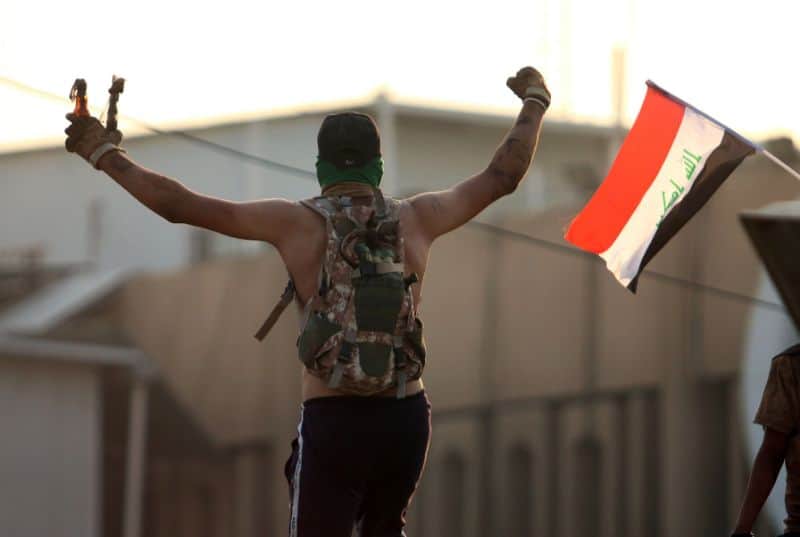Baghdad: Iraqi Prime Minister Haider al-Abadi on Thursday announced a new series of public works initiatives for the southern city of Basra, hit by a wave of deadly protests last week.
The move comes just two days before a key parliamentary meeting that could allow the premier’s political rivals to form a government without him.
Abadi made the statement following a cabinet meeting, delayed by two days as he visited oil-rich Basra where violent demonstrations last week saw 12 protesters killed and government buildings torched.
Basra has been at the epicentre of protests that broke out in July in the southern province before spreading to other parts of the country, as demonstrators railed against poor services and condemned corruption among Iraqi officials.
Anger in Basra flared early last week over a growing health crisis, after more than 30,000 people were hospitalised by pollution in the city’s water supply.
On Thursday, Abadi said a team of advisers would “assure the immediate implementation” of new water pumping, routing and filtration projects — but did not provide a budget or a timetable.
The announcement came as the parliament prepares to elect a new speaker on Saturday.
It also comes on the heels of an emergency meeting in parliament at the weekend that threw Abadi’s ability to hold onto his role into question, as the top two parliamentary blocs call on him to step down over the crisis in Basra.
Firebrand cleric Moqtada Sadr, whose bloc won the May 12 elections, distanced himself from his one-time ally Abadi, while a rival alliance of pro-Iranian former paramilitary fighters led by Hadi al-Ameri said it would work with Sadr to form a new government that excludes the premier.
Just a day later, Abadi said that he was “not set on a second term”.
The results of Saturday’s vote will give a concrete indication as to which bloc will be able to form the future cabinet.
On Wednesday, Sadr hosted Ameri in the southern city of Najaf, but the two leaders did not put out any statement.
In what appeared to be a head nod Thursday to the powerful Hashed al-Shaabi paramilitary force, Abadi said the government had decided to increase its fighters’ salaries and make them “equal to that of the armed forces”.
Formed in 2014, the Hashed al-Shaabi played a key role in pushing back the Islamic State group.
[source_without_link]Agence France-Presse[/source_without_link]

